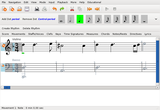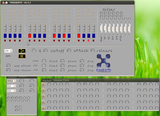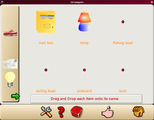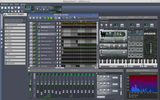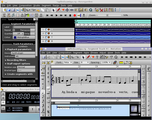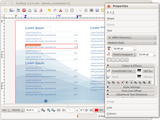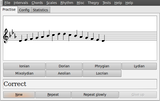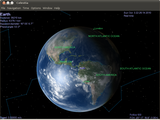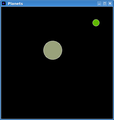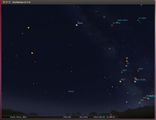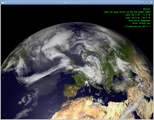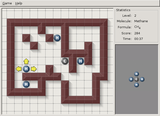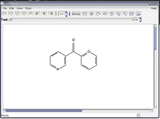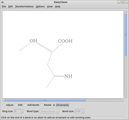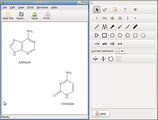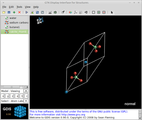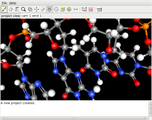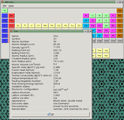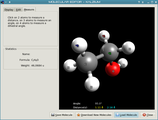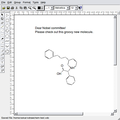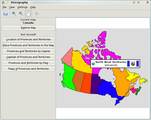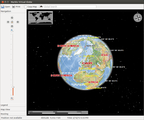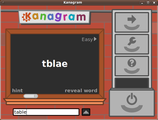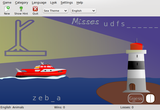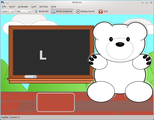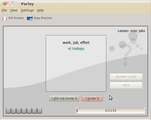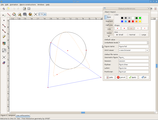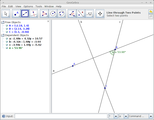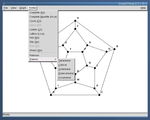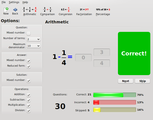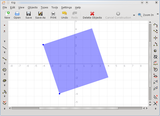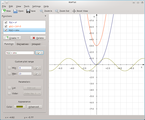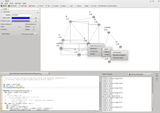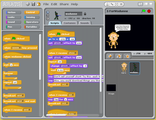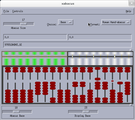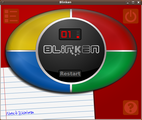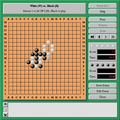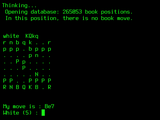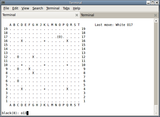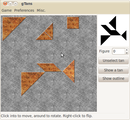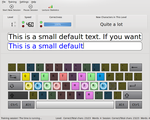The Debian Edu and
Skolelinux distribution have users and contributors all around the
globe. And a while back, an enterprising young man showed up on
our IRC channel
#debian-edu and started asking questions about how Debian Edu
worked. We answered as good as we could, and even convinced him to
help us with translations. And today I managed to get an interview
with him, to learn more about him.
Who are you, and how do you spend your days?
I'm a 25 year old free software enthusiast, living in Romania,
which is also my country of origin. Back in 2009, at a New Year's Eve
party, I had a very nice beer discussion with a
friend, when we realized we have no organised Debian community in our
country. A few days later, we put together the infrastructure for such
community and even gathered a nice Debian-ish crowd. Since then, I
began my quest as a free software hacker and activist and I am
constantly trying to cover as much ground as possible on that
field.
A few years ago I founded a small web development company, which
provided me the flexible schedule I needed so much for my
activities. For the last 13 months, I have been the Technical Director
of Fundația Ceata, which is a free
software activist organisation endorsed by the FSF and the FSFE, and
the only one we have in our country.
How did you get in contact with the Skolelinux / Debian Edu
project?
The idea of participating in the Debian Edu project was a surprise
even to me, since I never used it before I began getting involved in
it. This year I had a great opportunity to deliver a talk on
educational software, and I knew immediately where to look. It was a
love at first sight, since I was previously involved with some of the
technologies the project incorporates, and I rapidly found a lot of
ways to contribute.
My first contributions consisted in translating the installer and
configuration dialogs, then I found some bugs to squash (I still
haven't fixed them yet though), and I even got my eyes on some other
areas where I can prove myself helpful. Since the appetite for free
software in my country is pretty low, I'll be happy to be the first
one around here advocating for the project's adoption in educational
environments, and maybe even get my hands dirty in creating a flavour
for our own needs. I am not used to make very advanced plannings, so
from now on, time will tell what I'll be doing next, but I think I
have a pretty consistent starting point.
What do you see as the advantages of Skolelinux/Debian
Edu?
Not a long time ago, I was in the position of configuring and
maintaining a LDAP server on some Debian derivative, and I must say it
took me a while. A long time ago, I was maintaining a bigger
Samba-powered infrastructure, and I must say I spent quite a lot of
time on it. I have similar stories about many of the services included
with Skolelinux, and the main advantage I see about it is the
out-of-the box availability of them, making it quite competitive when
it comes to managing a school's network, for example.
Of course, there is more to say about Skolelinux than the
availability of the software included, its flexibility in various
scenarios is something I can't wait to experiment "into the wild" (I
only played with virtual machines so far). And I am sure there is a
lot more I haven't discovered yet about it, being so new within the
project.
What do you see as the disadvantages of Skolelinux / Debian
Edu?
As usual, when it comes to Debian Blends, I see as the biggest
disadvantage the lack of a numerous team dedicated to the
project. Every day I see the same names in the changelogs, and I have
a constantly fear of the bus factor in this story. I'd like to see
Debian Edu advertised more as an entry point into the Debian
ecosystem, especially amongst newcomers and students. IMHO there are a
lot low-hanging fruits in terms of bug squashing, and enough
opportunities to get the feeling of the Debian Project's dynamics. Not
to mention it's a very fun blend to work on!
Derived from the previous statement, is the delay in catching up
with the main Debian release and documentation. This is common though
to all blends and derivatives, but it's an issue we can all work
on.
Which free software do you use daily?
I can hardly imagine myself spending a day without Vim, since my
daily routine covers writing code and hacking configuration files. I
am a fan of the Awesome window manager (but I also like the
Enlightenment project a lot!),
Claws Mail due to its ease of
use and very configurable behaviour. Recently I fell in love with
Redshift, which helps me
get through the night without headaches. Of course, there is much more
stuff in this bag, but I'll need a blog on my own for doing this!
Which strategy do you believe is the right one to use to
get schools to use free software?
Well, on this field, I cannot do much more than experiment right
now. So, being far from having a recipe for success, I can only assume
that:
- schools would like to get rid of proprietary software
- students will love the openness of the system, and will want to
experiment with it - maybe we need to harvest the native curiosity
of teenagers more?
- there is no "right one" when it comes to strategies, but it would
be useful to have some success stories published somewhere, so
other can get some inspiration from them (I know I'd promote
them!)
- more active promotion - talks, conferences, even small school
lectures can do magical things if they encounter at least one
person interested. Who knows who that person might be? ;-)
I also see some problems in getting Skolelinux into schools; for
example, in our country we have a great deal of corruption issues, so
it might be hard(er) to fight against proprietary solutions. Also,
people who relied on commercial software for all their lives, would be
very hard to convert against their will.


